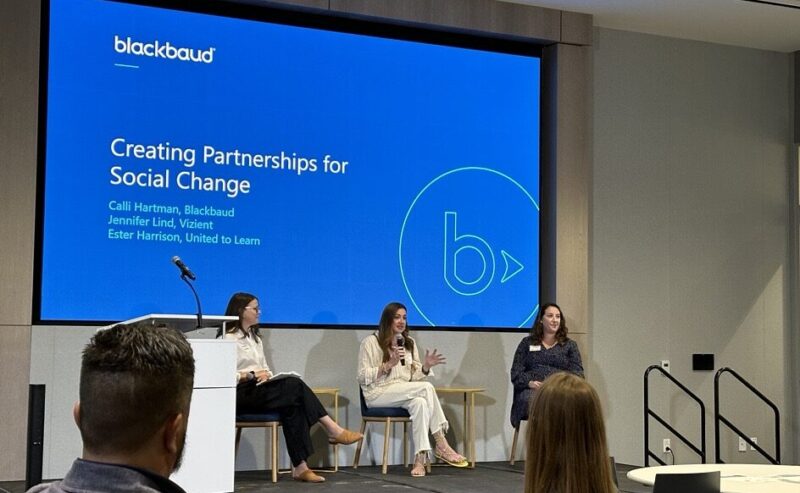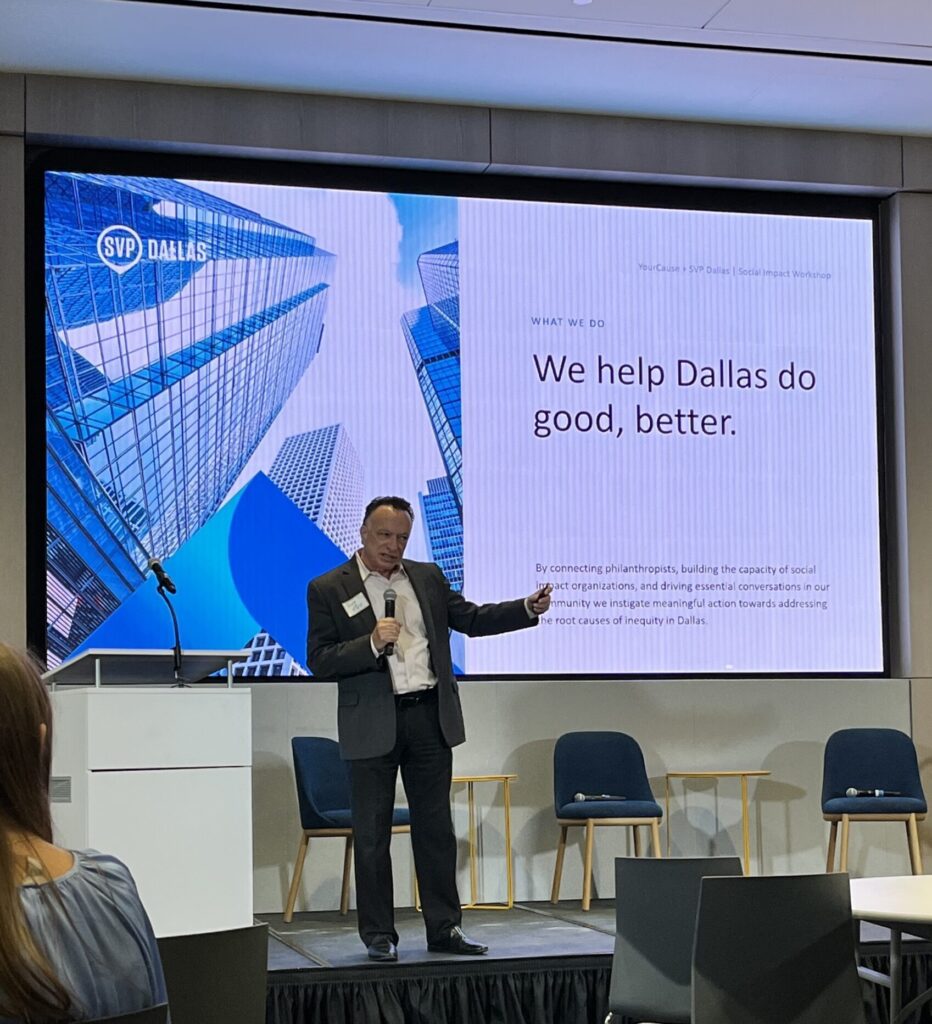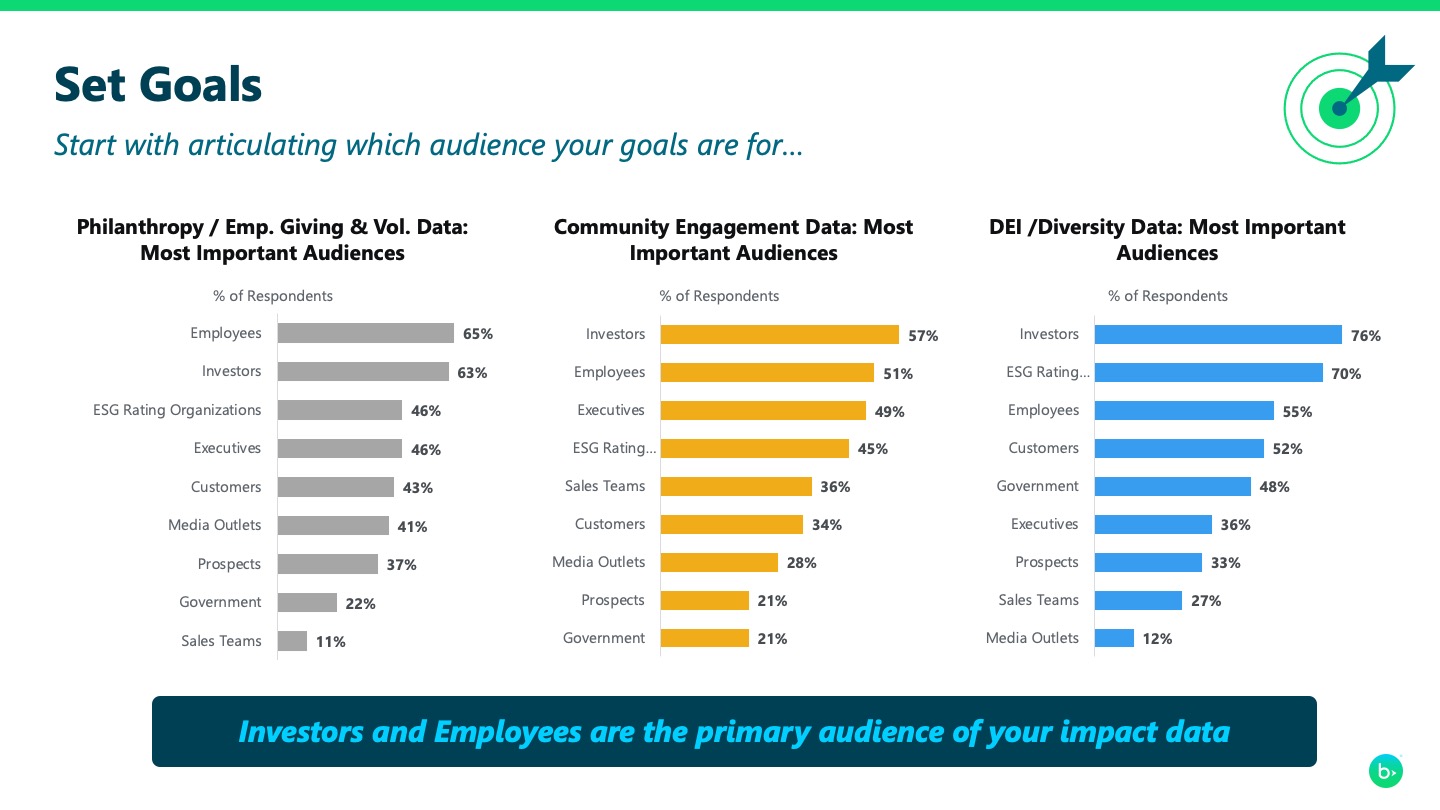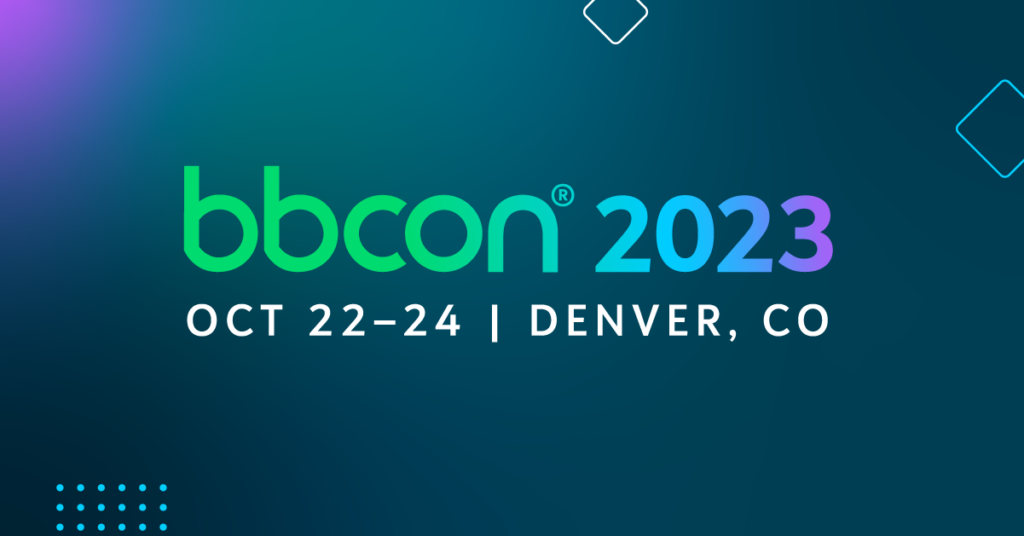Contributors: Sydney Tindall, Makena Kushnir, Kayla Barnes, Caroline Dennis
The social impact space is ever-changing. New challenges arise daily, trends shift right before our eyes, and the needs of our communities are consistently evolving. Yet, for the professionals leading the industry, the desire for connection, collaboration, and innovation remains steady.
YourCause is excited to be recreating these opportunities for in-person events. Throughout 2023, we’ve held social impact workshops across the country, hosting a variety of topical discussions with CSR leaders. In our most recent workshop in Dallas, Texas, we posed the following questions: How do I build authentic partnerships with the nonprofits we support? How can I effectively apply our organization’s collected metrics to our set goals and future success? Where can I turn to for partnership to ensure my programs are impactful?
To answer these questions and inspire additional conversation, we looked to several voices to share their experience and expertise.
Creating Partnerships for Social Change
Our first session of the workshop highlighted voices from both the CSR and nonprofit worlds with a panel discussing “Creating Partnerships for Social Change.” The panel featured Calli Hartman, Head of Customer Success for Corporate Impact at Blackbaud, alongside Jennifer Lind, Senior Director of ESG & Community Impact at Vizient, and Ester Harrison, Director of Stewardship at United to Learn. They shed light on Vizient’s strong partnership with United to Learn, a Dallas-based nonprofit dedicated to improving early literacy and bridging the opportunity gap for Dallas ISD students.
A notable aspect of this partnership is Vizient employees’ active involvement in United to Learn’s annual “Community Campus Day.” Through volunteering efforts such as gardening, mural painting, and refreshing teachers’ lounges, Vizient employees directly witness the profound difference they make in the lives of children in the Dallas area. This collaboration not only uplifts the community but also significantly boosts Vizient’s employee engagement rate, currently standing at an impressive 55%.

To create a powerful partnership between corporations and selected nonprofit partners, the panel emphasized the importance of understanding the needs of the organization, activating employees’ volunteerism, and identifying clear partnership goals.
Engaged Venture Philanthropy
Transitioning into the next session, we welcomed a local organization from Dallas, Social Venture Partners (SVP) Dallas, to speak to ” What is Engaged Venture Philanthropy?” By connecting philanthropists, building the capacity of social impact organizations, and driving essential conversations in the community, SVP Dallas instigates meaningful action toward addressing the root causes of inequity in Dallas. Their five program areas to meet such needs include Social Impact Advising, Fiscal Sponsorship, Impact Investing, the Dana Juett Residency Program, and Partner & Prosper.
Tony Fleo, CEO of SVP Dallas, captivated the audience with a compelling presentation on how corporations can build effective volunteer programs. He emphasized the key factors to success, including connecting to employees’ values, engaging the community, and leveraging their individual strengths in program development.
Strengths-based Volunteering
To lean into strengths, one must first identify such strengths. When managers focus on employee strengths, 61% are engaged and only 1% are actively disengaged. Then, it’s critical to match responsibilities to employee strengths. Employees who use their strengths every day are six times more likely to be engaged at work. And as a result, when employees are engaged in this type of volunteer program, organizations see higher engagement, better performance, and a smaller likelihood of the employee leaving their company.
The presentation further explored the power of strengths-based volunteering, citing that identifying and matching employees’ strengths to meaningful responsibilities leads to higher engagement, better performance, and increased employee retention. Skills-based volunteers, as reported by VolunterHub, are 47% more likely to report high satisfaction compared to traditional non-skill-based volunteers. SVP’s skills-based volunteer program, Partner & Prosper, connects companies with social impact organizations, enhancing their experience.
The idea of self-interest in community engagement was also highlighted, acknowledging that most good deeds are driven by personal interests. By addressing employees’ self-interests, organizations can maximize the impact of their community programs, and employees who use their strengths every day are six times more likely to be engaged at work.

Attendees of the workshop shared how they do this in their organizations, for example, by providing a skills-based sabbatical program to employees, allowing them to devote time to projects outside of their day-to-day roles. Cultivating these intensive, short-term projects not only solves huge problems for nonprofits but also drives a much more highly engaged and appreciative employee base.
Another key factor in the success of volunteer programs is setting signature community programs, especially ones your employees can count on consistently to participate in, and feel are tied to your social impact brand as an organization. Companies with signature community programs observe increased employee engagement, even among non-participants. There is a way to “Do Good, Better”, and it starts with assessing the personal interests and strengths of each of your employees.
The Value of Social Impact Data
Analyzing the importance of data-driven decision-making took center stage in the next session of the day titled “The Value & Validation of Social Impact Data,” led by Nathan Froelich, Senior Manager Strategy & Business Development for Corporate Impact at Blackbaud. Impact data encompasses various dimensions, including geography, volunteerism, grantmaking, needs assessments, gender, beneficiaries, evaluation, and more. Thus, data is the CSR professional’s most valuable resource.
To derive meaningful outcomes, the session stressed the significance of using benchmarks, setting clear goals, and maintaining data discipline. Setting clear goals starts with articulating which audience your goals are intended for. Polling data reveals that investors and employees are the primary audiences of your impact data and that it’s important for organizations to set both Business and Social goals in this process.

How do you stay disciplined on your social goals? What does that mean?
It means that you must stay true to the goal indicators that you are measuring. If you are changing your indicators year over year or from leader to leader, it’s hard to tell your long-term social impact story. Keep consistent with your impact report measurements. Stay disciplined on the goals you are striving towards as an organization.
Takeaways from the ACCP Insights Survey
The workshop concluded with an insightful presentation by Kayla Barnes, Senior Product Marketing Manager for Corporate Impact at Blackbaud, on the ACCP’s 4th annual Insights Survey. This comprehensive study garnered insights from 149 companies, shedding light on critical topics such as budgets, staffing, focus areas, and leadership’s understanding of CSR & ESG.
Of those 149 companies, 60% reported having a CSR team of 5 people or less, 44% reported having 1,000 to 10,000 employees, and a total budget of over $1 billion for community investment was represented.
Key takeaways from the survey revealed that CSR professionals are facing increased responsibilities, with 86% reporting added tasks in the last year. However, increased responsibilities are not always matched with increased resources, with companies requiring more headcount, financial resources, improved technology, and a diverse talent pipeline to effectively meet their social impact goals.
Amidst these challenges, there was a bright spot in volunteerism engagement trends, with 61% of companies experiencing increased participation. The survey also showed a growing focus on in-person volunteerism, indicating the value of personal connections and hands-on engagement in driving positive change.
Interested in more social impact thought leadership?
Our hope with these events is that attendees leave feeling a little lighter in the challenges they face in the CSR world, inspired by their peers in the room around them, and thoughtfully motivated to take the day’s insights and apply them to their own organization’s initiatives. We are committed to being a partner that never ceases to ask questions in the industry, ensuring we are constantly innovating our solutions to serve the needs of our clients, their employees, and the causes they care most about.
Stay tuned for more social impact workshops from YourCause coming soon. In the meantime, registration for bbcon 2023 is now open! If you aren’t familiar, bbcon is Blackbaud’s annual conference, bringing together a community of change-makers to share, learn, inspire, and innovate. Join us in person in Denver, Colorado on October 22nd-24th (or virtually) for three days of unmatched networking, the latest in innovation and industry trends, and inspiring keynotes about social good.
YourCause, as a part of the Blackbaud family, is thrilled about the corporate responsibility track we have in store this year with discussions around workplace culture strategies for authentic DEI, driving volunteerism, leveraging impact reporting, and building trust in your communities. Learn more and explore all the sessions in the blog post below!

